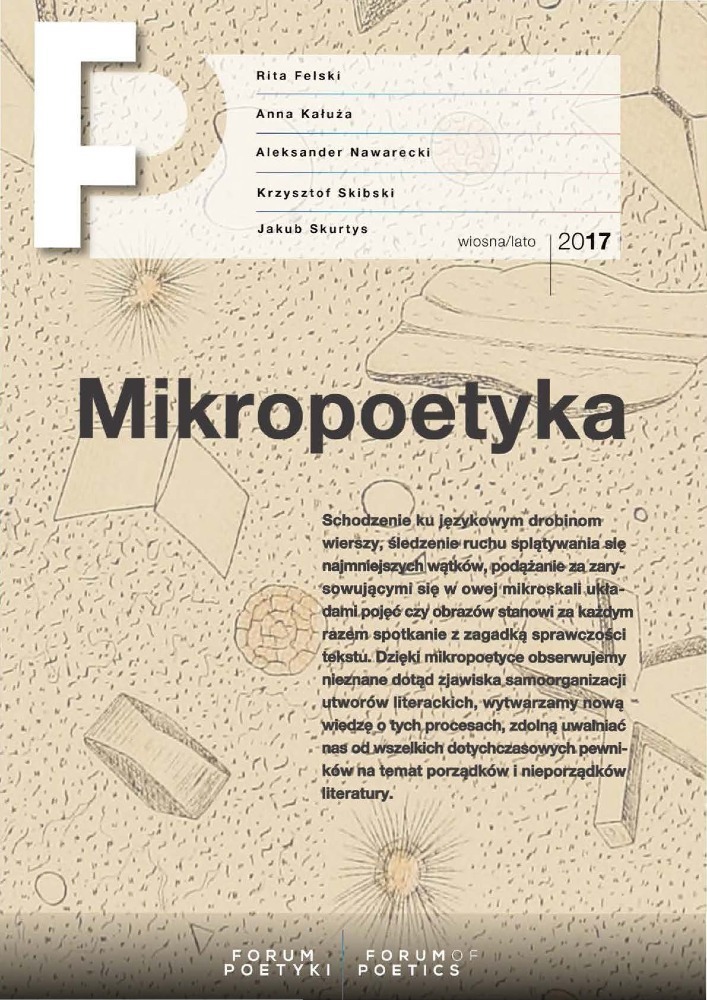Abstract
This text represents an attempt to analyze the main premises of Rita Felski’s theoretical project presented in her book Uses of Literature, translated into Polish as Literatura w użyciu (Literature in Use). The American scholar’s reflections, focused on problems of reception aesthetic and constituting a polemic with the concept, crucial to contemporary literary theory, of the hermeneutics of suspicion and with critical theory, are here interpreted using the four concepts relied on by Felski in the book: recognition enchantment, knowledge and shock. They constitute various forms of readerly engagement with the text and various forms of use, of applications of literature in practices of everyday, non-specialist reading. This article identifies Felski’s attempt to disrupt the elitism of literary studies and their exclusionary stance toward non-professional readers as one of the most important elements in her project as put forth in the book.
References
Compagnon, Antoine. Demon teorii: literatura a zdrowy rozsądek. Przetłumaczone przez Tomasz Stróżyński. Gdańsk: Wydawnictwo słowo/obraz terytoria, 2010.
Czapliński, Przemysław. „Manifest literacki jako tekst literaturoznawczy”. Pamiętnik Literacki, nr 1 (1992): 62–82.
Felski, Rita. Literatura w użyciu. Zredagowane przez Ewa Kraskowska i Ewa Rajewska. Poznań: Wydawnictwo „Poznańskie Studia Polonistyczne”, 2016.
Felski, Rita. The Limits of Critique. Chicago: The University of Chicago Press, 2015.
Koziołek, Ryszard. Dobrze się myśli literaturą. Wołowiec: Wydaw. Czarne, 2016
License
Authors of articles are responsible for securing the rights to other publications (texts, tables, drawings and other illustrations) quoted or reproduced in their texts.

